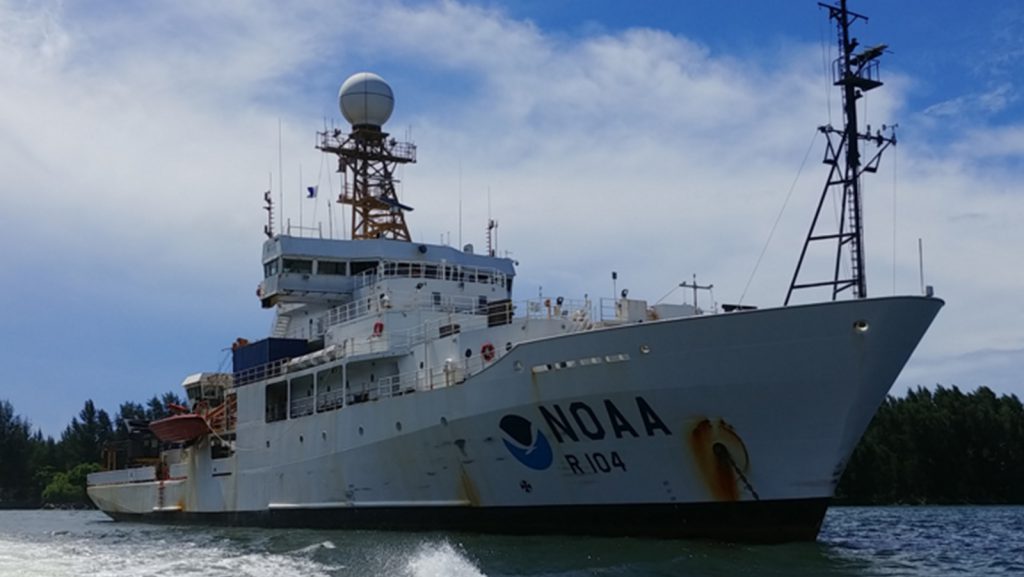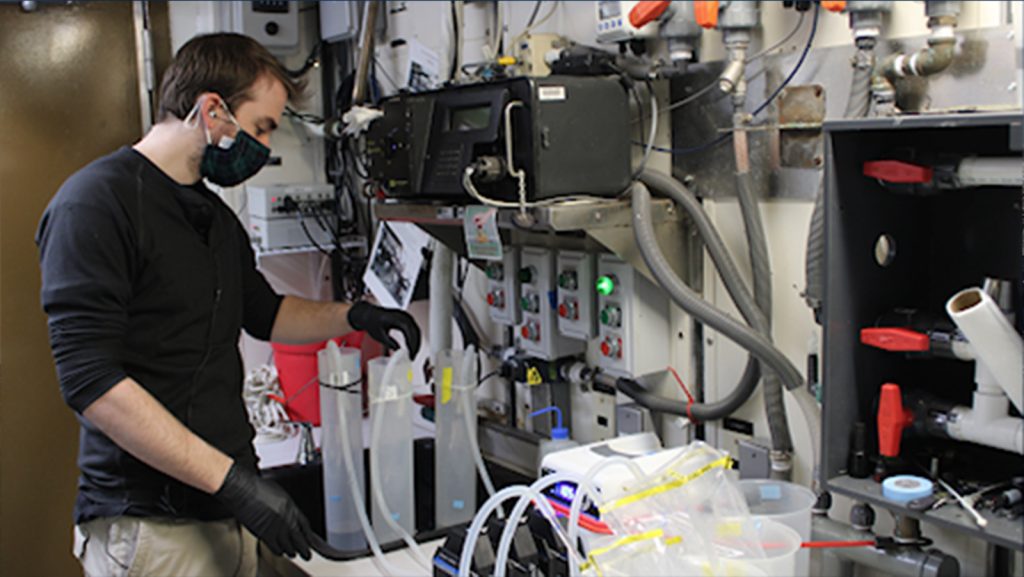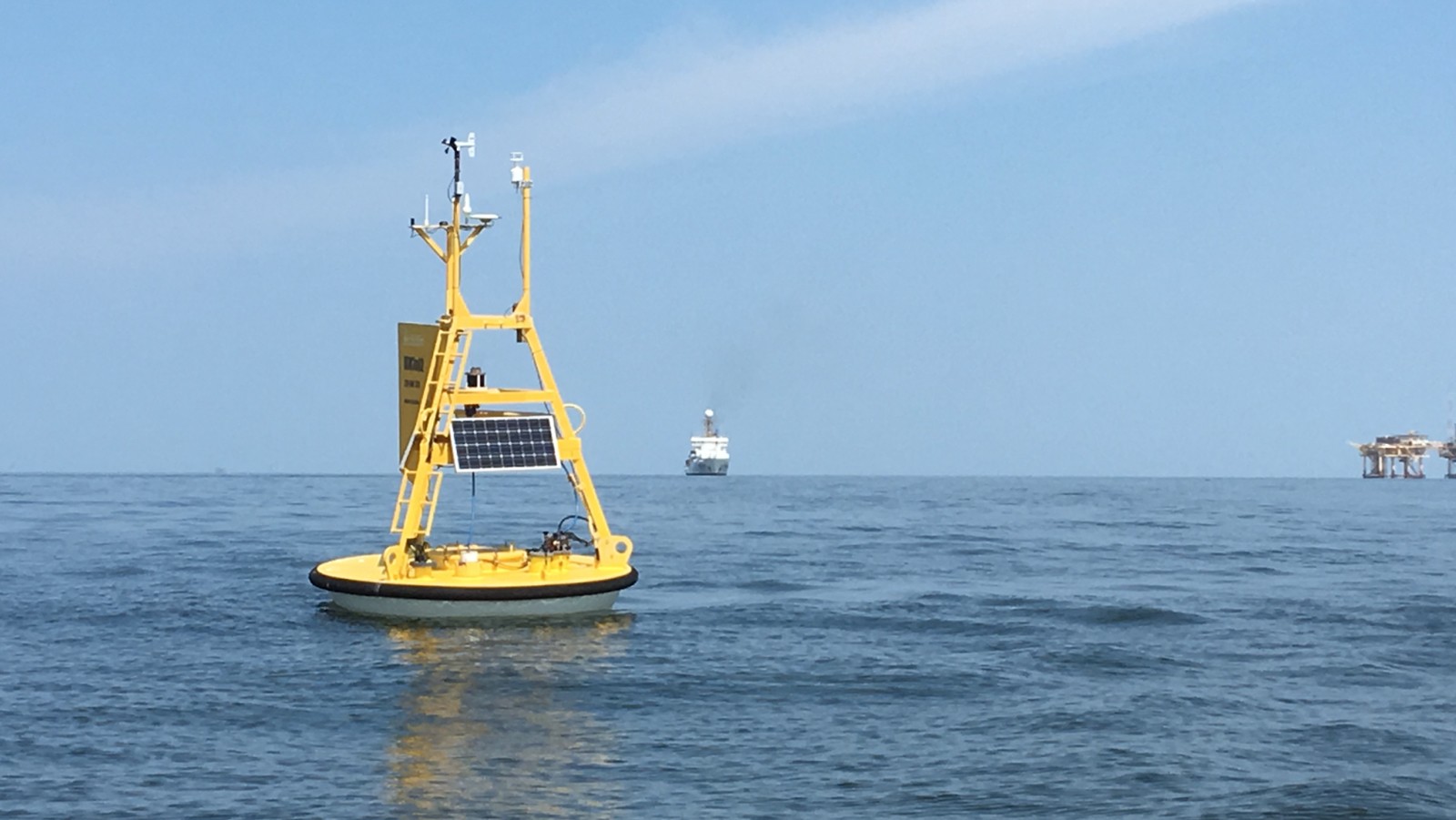In 2017, the United Nations General Assembly proclaimed the time frame of 2021-2030 as the UN Decade of Ocean Science for Sustainable Development, also known as the “Ocean Decade,” to address the degradation of the ocean and encourage innovative science initiatives to better understand and ultimately reverse its declining health.
Several collaborative initiatives featuring work by scientists at NOAA’s Atlantic Oceanographic Meteorological Laboratory (AOML) have recently been endorsed in the first Ocean Decade Actions announcement, made by the United Nations Intergovernmental Oceanographic Commission (IOC) of UNESCO in 2021.
Scientists at AOML are collaborating with national and international partners and stakeholders to carry out research that supports the vision of the UN Ocean Decade through initiatives such as the Observing Air-Sea Interactions Strategy (OASIS), the Ocean Biomolecular Observing Network (OBON), the Global Ocean Biogeochemistry Array (GO-BGC), and the Ocean Acidification Research for Sustainability (OARS) program.
OASIS will provide observational-based knowledge to improve weather forecasts, climate and ocean prediction, and promote ocean health, the blue economy, and sustainable food and energy.
“Earth is a water world and through the Observing Air-Sea Interactions Strategy (OASIS) Programme we will work together to better understand, observe and forecast how the ocean and atmosphere interact. The OASIS Program will not only improve forecasts of weather and climate fueled by ocean heat and moisture, but also make it possible to track how much carbon dioxide is absorbed by the oceans,” said Dr. Meghan Cronin, NOAA Pacific Marine Environmental Laboratory (PMEL) scientist and co-lead for the program.
The OASIS program is the outcome of collaborations with international partners to address global observing strategies and create a unified vision for surface ocean observations. AOML’s ocean carbon scientists contribute to OASIS through the Surface Ocean CO2 Reference Observing Network. In addition, AOML and PMEL work with NOAA’s Global Ocean Monitoring and Observing Program to provide OASIS with hourly observations of mixed layer currents, near-surface temperatures, and barometric pressure changes from a variety of observing platforms such as global drifters and the moored array of the PIRATA Northeast Extension project. These valuable data provides details about the near sea-air interface used to help improve forecasts of hurricanes and other storms.

Scientists at AOML also collaborate with The Partnership for Observation of the Global Ocean (POGO) in support of OBON. Biomolecules such as DNA represent life in all facets of the marine ecosystem from microorganisms to megafauna, ocean water, and salty air. OBON will develop a global biomolecular observing system that allows scientists to better understand ocean ecosystems and use this knowledge to manage and protect them. The program will also develop new methods and technologies for biomolecular observation to extend our ability to sample and analyze these indicators of life in the ocean. Community empowerment is needed to address stressors to marine life such as pollution, habitat loss, and climate change. AOML will work with partners to help communities detect biological hazards such as algal blooms and pathogens, supporting the next-generation ocean observing system.

The GO-BGC project will revolutionize our understanding of ocean biogeochemical cycles through the development of a global network of biogeochemical-Argo (BGC-Argo) floats. AOML supports this initiative by hosting the US Argo Data Acquisition Center. Scientists at AOML will process and quality control all BGC-Argo chemical and biological sensor data collected by US entities. The near real-time data will then be sent to two international distribution centers for use by the global scientific community. NOAA is also supplementing the GO-BGC array by deploying pilot arrays, including one led by AOML in the Gulf of America.
“The AOML BGC-Argo floats deployed in the Gulf represent the first time six-sensor floats have been deployed in this chronically under-observed region. AOML researchers are eager to use the unparalleled BGC-Argo datastreams to investigate topics such as ocean acidification and drawdown of CO2 by the oceans, ocean conditions that coincide with the initiation of harmful algal blooms and the impact of extreme weather events such as hurricanes on ocean biogeochemistry,” said Dr. Emily Osborne, Principal Investigator for AOML’s BGC-Argo program.
AOML contributes to the Ocean Acidification Research for Sustainability (OARS) initiative by participating in several international research programs that track changes of carbon in the ocean. For example, scientists at AOML support the Global Ocean Ship-based Hydrographic Investigations Program (GO-SHIP), by conducting GO-SHIP cruises along ocean transects that are decadally resampled to quantify changes in the storage and movement of heat, freshwater, carbon dioxide, and nutrients at all depths in the water column. AOML also supports the Climate and Ocean: Variability, Predictability, and Change (CLIVAR), and Ship of Opportunity (SOOP) projects to better understand the dynamics, interaction, and predictability of the climate system, as well as the impacts of increasing carbon dioxide levels on marine ecosystems. To this end, AOML uses Moored Autonomous pCO2 (MAPCO2) buoys to monitor ocean acidification in coral communities at Cheeca Rocks in the Florida Keys National Marine Sanctuary and La Parguera Natural Reserve in Puerto Rico.
AOML’s efforts to better understand changes in the marine environment, improve weather forecasting, and drive forward innovative scientific research is much needed at a time when ocean health is declining. Through collaboration and participation in endorsed Ocean Decade Actions, such as the Observing Air-Sea Interactions Strategy (OASIS), the Ocean Biomolecular Observing Network (OBON), the Global Ocean Biogeochemistry Array (GO-BGC), and the Ocean Acidification Research for Sustainability (OARS) program, AOML supports the management and sustainability of a healthy ocean. To see a full list of endorsed Ocean Decade Actions, visit the official Ocean Decade website.
